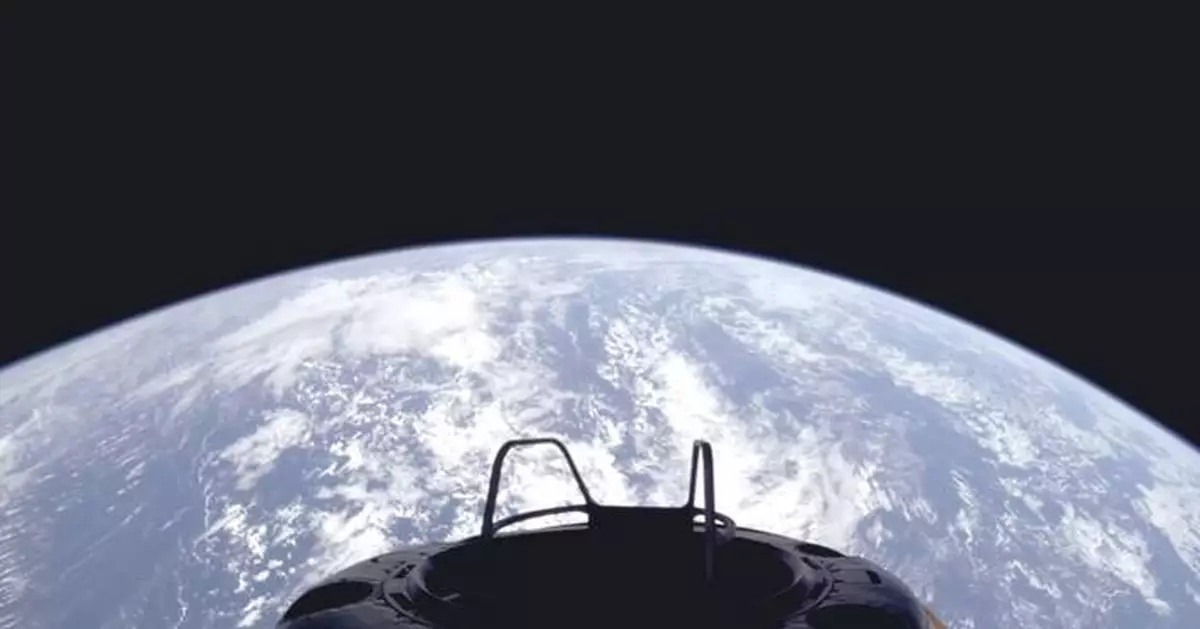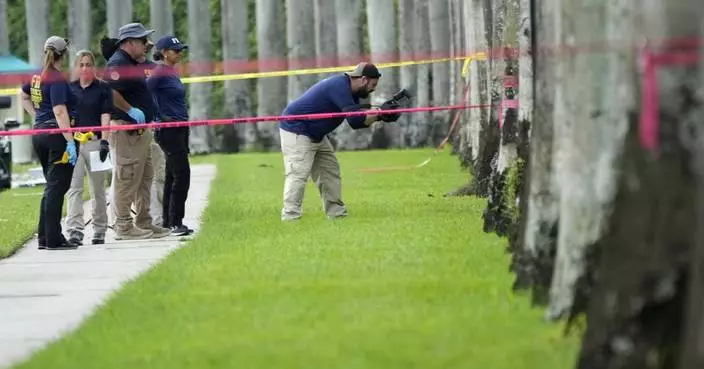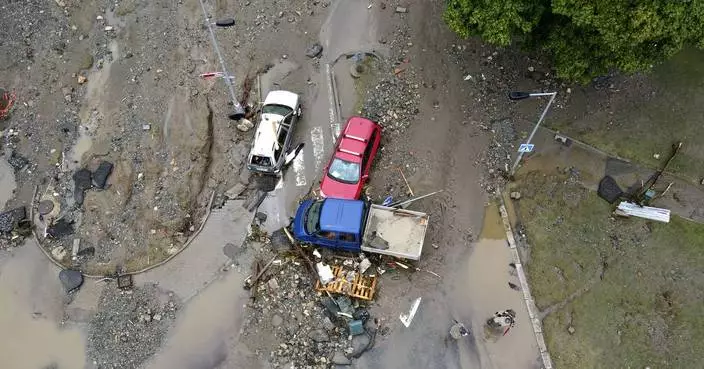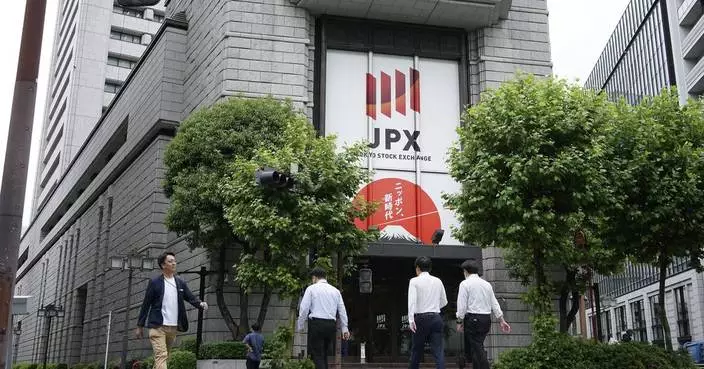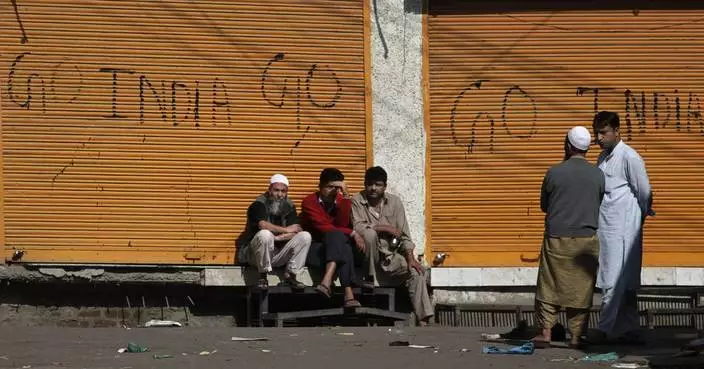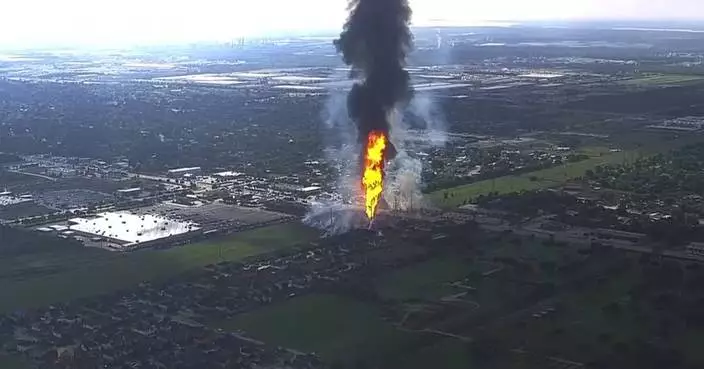CAPE CANAVERAL, Fla. (AP) — A tech billionaire popped out from a SpaceX capsule hundreds of miles above Earth and performed the first private spacewalk Thursday, a high-risk endeavor once reserved for professional astronauts.
Tech entrepreneur Jared Isaacman teamed up with SpaceX to test the company’s brand new spacesuits on his chartered flight. The daring feat also saw SpaceX engineer Sarah Gillis going out once Isaacman was safely back inside.
Click to Gallery
CAPE CANAVERAL, Fla. (AP) — A tech billionaire popped out from a SpaceX capsule hundreds of miles above Earth and performed the first private spacewalk Thursday, a high-risk endeavor once reserved for professional astronauts.
This image made from a SpaceX video shows SpaceX engineer Sarah Gillis on her way out of the capsule, Thursday Sept. 12, 2024. (SpaceX via AP)
This image made from a SpaceX video shows the start of the first private spacewalk led by tech billionaire Jared Isaacman Thursday Sept. 12, 2024. (SpaceX via AP)
This image made from a SpaceX video shows the crew of the first private spacewalk led by tech billionaire Jared Isaacman inside the capsule, Thursday Sept. 12, 2024. (SpaceX via AP)
This image provided by SpaceX on Tuesday, Sept. 10, 2024, shows a view of Earth and the Dragon capsule's Skywalker spacewalk platform shortly after the Polaris Dawn crew launched into an orbit. (SpaceX via AP)
This spacewalk was simple and quick — the hatch was open barely a half hour — compared with the drawn-out affairs conducted by NASA. Astronauts at the International Space Station often need to move across the sprawling complex for repairs, always traveling in pairs and lugging gear. Station spacewalks can last seven to eight hours; this one clocked in at less than two hours.
Isaacman emerged first, joining a small elite group of spacewalkers who until now had included only professional astronauts from a dozen countries.
“Back at home, we all have a lot of work to do. But from here, it sure looks like a perfect world," Isaacman said as the capsule soared above the South Pacific. Cameras on board caught his silhouette, waist high at the hatch, with the blue Earth beneath.
The commercial spacewalk was the main focus of the five-day flight financed by Isaacman and Elon Musk’s company, and the culmination of years of development geared toward settling Mars and other planets.
All four on board donned the new spacewalking suits to protect themselves from the harsh vacuum. They launched on Tuesday from Florida, rocketing farther from Earth than anyone since NASA’s moonwalkers. The orbit was reduced by half — to 460 miles (740 kilometers) — for the spacewalk.
This first spacewalking test involved more stretching than walking. Isaacman kept a hand or foot attached to the capsule the whole time as he flexed his arms and legs to see how the spacesuit held up. The hatch sported a walker-like structure for extra support.
After roughly 10 minutes outside, Isaacman was replaced by Gillis to go through the same motions. The SpaceX engineer bobbed up and down in weightlessness, no higher than her knees out of the capsule, as she twisted her arms and sent reports back to Mission Control.
Each had 12-foot (3.6-meter) tethers but did not unfurl them or dangle at the end unlike what happens at the space station, where astronauts routinely float out at a much lower orbit.
More and more wealthy passengers are plunking down huge sums for rides aboard private rockets to experience a few minutes of weightlessness. Others have spent tens of millions to stay in space for days or even weeks. Space experts and risk analysts say it’s inevitable that some will seek the thrill of spacewalking, deemed one of the most dangerous parts of spaceflight after launch and reentry but also the most soul-stirring.
This operation was planned down to the minute with little room for error. Trying out new spacesuits from a spacecraft new to spacewalking added to the risk. So did the fact that the entire capsule was exposed to the vacuum of space.
There were a few glitches. Isaacman had to manually pull the hatch open instead of pushing a button on board. Before heading out, Gillis reported seeing bulges in the hatch seal.
Scott “Kidd” Poteet, a former Air Force Thunderbird pilot, and SpaceX engineer Anna Menon stayed strapped to their seats to monitor from inside. All four underwent intensive training before the trip.
It went by “in the blink of an eye,” said SpaceX commentator Kate Tice.
Congratulations streamed in after the spacewalk concluded at one hour and 46 minutes — or a full swing and then some around Earth.
“Today’s success represents a giant leap forward for the commercial space industry,” NASA Administrator Bill Nelson said via X.
Isaacman, 41, CEO and founder of the Shift4 credit card-processing company, has declined to disclose how much he invested in the flight. It was the first of three flights in a program he’s dubbed Polaris; this one was called Polaris Dawn. For SpaceX’s inaugural private flight in 2021, he took up contest winners and a cancer survivor.
Until Thursday, only 263 people had conducted a spacewalk, representing 12 countries. The Soviet Union’s Alexei Leonov kicked it off in 1965, followed a few months later by NASA’s Ed White.
The Associated Press Health and Science Department receives support from the Howard Hughes Medical Institute’s Science and Educational Media Group. The AP is solely responsible for all content.
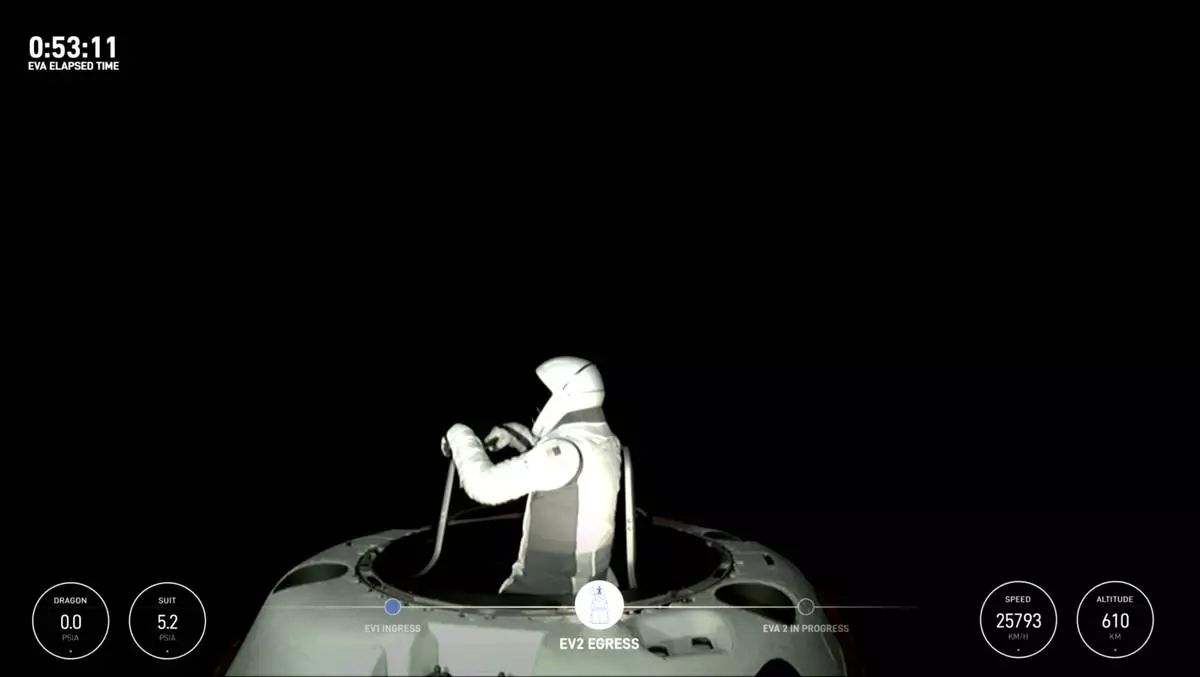
This image made from a SpaceX video shows SpaceX engineer Sarah Gillis emerging from the capsule, Thursday Sept. 12, 2024. (SpaceX via AP)
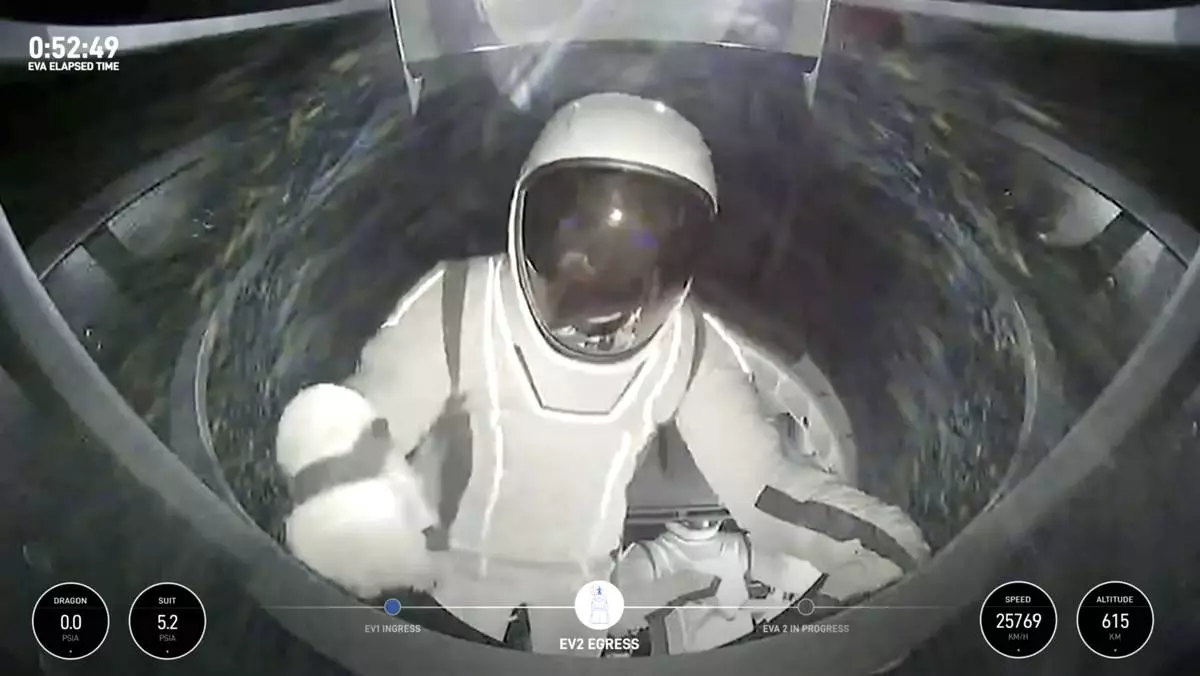
This image made from a SpaceX video shows SpaceX engineer Sarah Gillis on her way out of the capsule, Thursday Sept. 12, 2024. (SpaceX via AP)
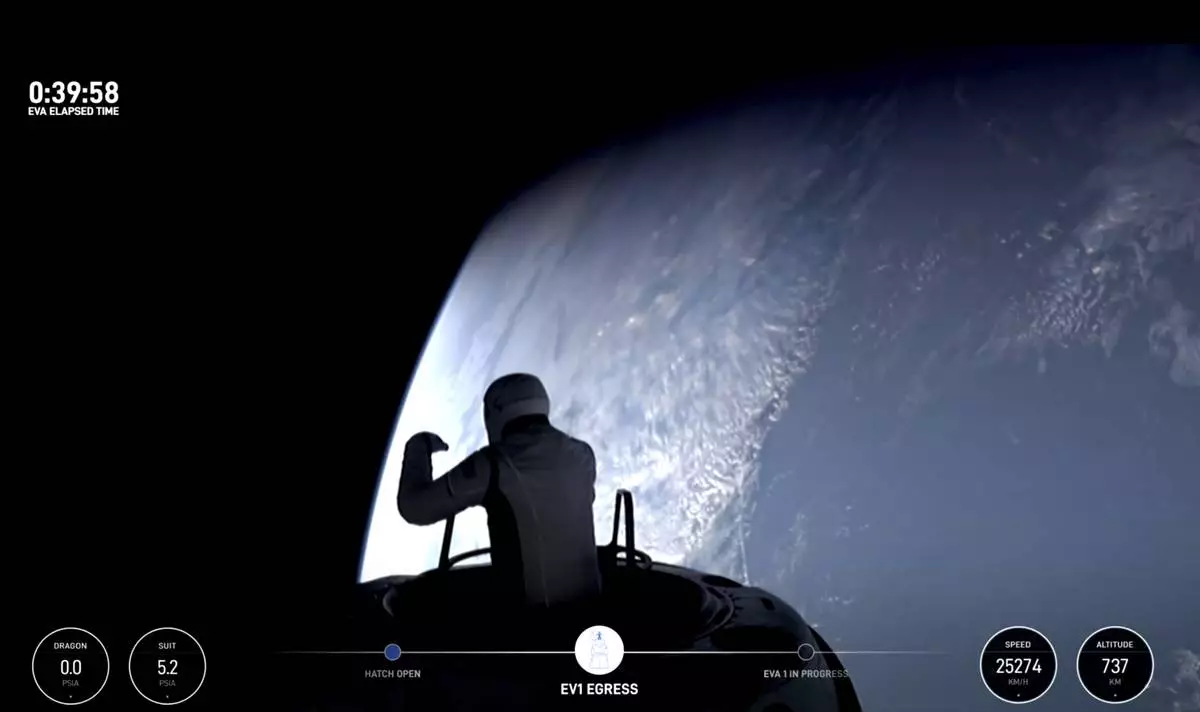
This image made from a SpaceX video shows the start of the first private spacewalk led by tech billionaire Jared Isaacman Thursday Sept. 12, 2024. (SpaceX via AP)
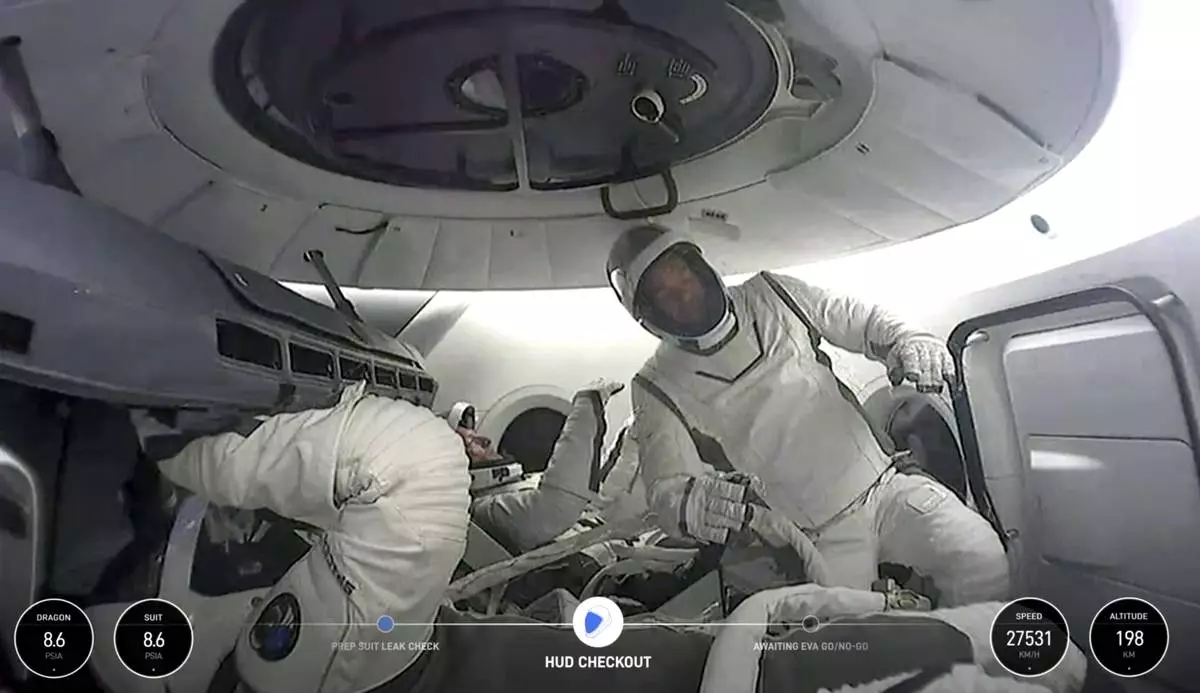
This image made from a SpaceX video shows the crew of the first private spacewalk led by tech billionaire Jared Isaacman inside the capsule, Thursday Sept. 12, 2024. (SpaceX via AP)
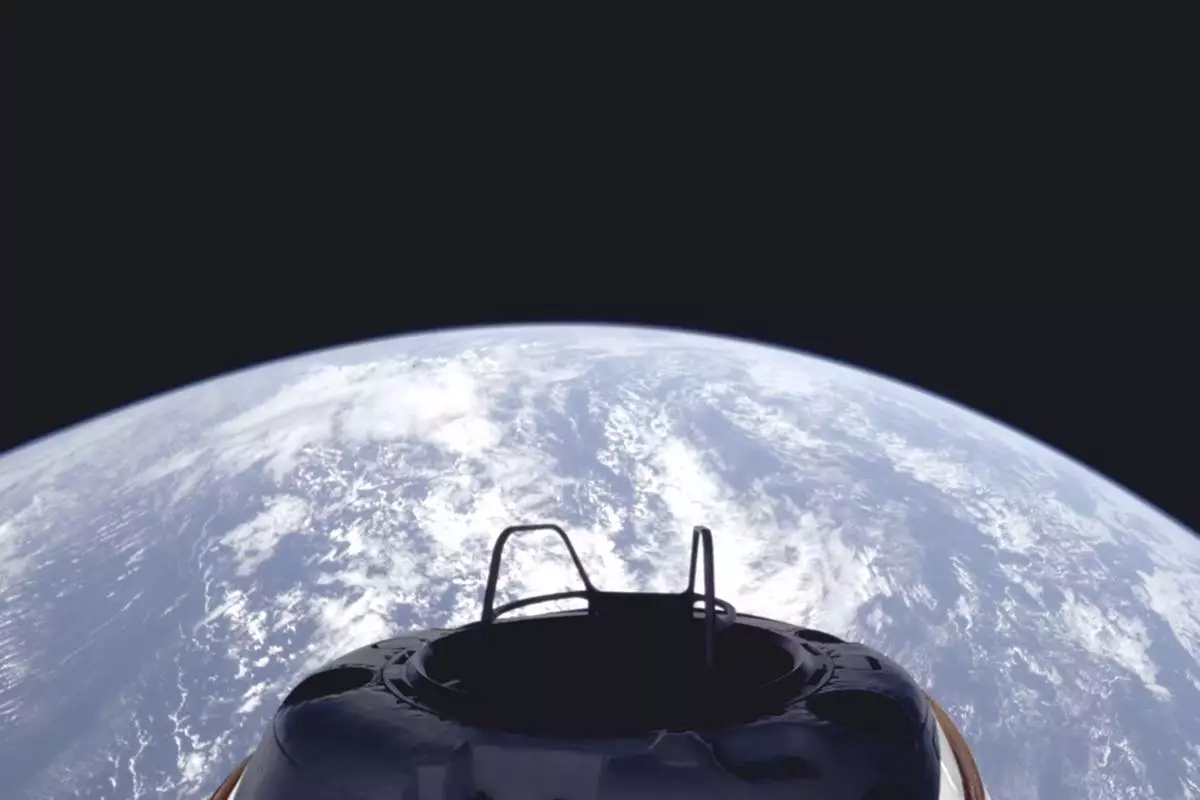
This image provided by SpaceX on Tuesday, Sept. 10, 2024, shows a view of Earth and the Dragon capsule's Skywalker spacewalk platform shortly after the Polaris Dawn crew launched into an orbit. (SpaceX via AP)
GENEVA (AP) — Independent U.N. human rights experts said in a new report Tuesday that their findings show Venezuela's government has intensified the use of “harshest and most violent" tools of repression following the disputed July presidential election.
The official results of the July 28 vote have been widely criticized as undemocratic, opaque and aimed to maintain President Nicolás Maduro in power.
In its report, the fact-finding mission on Venezuela, commissioned by the U.N.-backed Human Rights Council, denounced rights violations including arbitrary detentions, torture, and sexual and gender-based violence by the country's security forces that “taken as a whole, constitute the crime against humanity of persecution on political grounds.”
“During the period covered by this report, and especially after the presidential election of July 28, 2024, the state reactivated and intensified the harshest and most violent mechanisms of its repressive apparatus,” said the experts in the report, which covered a one-year period through Aug. 31.
The findings echo concerns from U.N. Secretary-General Antonio Guterres, U.S. Secretary of State Antony Blinken, Human Rights Watch, and others about Venezuela and its democracy, including repression before and after the highly anticipated vote and the subsequent flight into exile of Venezuela's opposition leader Edmundo González.
Marta Valiñas, head of the experts team, said that between July 29 and Aug. 6, Venezuelan authorities acknowledged they arrested more than 2,200 people.
"Of these, we have confirmed the arrest of at least 158 children — some with disabilities," Valiñas told reporters at a news conference Tuesday in Geneva, noting that some had been accused of serious crimes, such as terrorism.
“This phenomenon is something new and extremely worrying,” she said. "We are facing a systematic, coordinated and deliberate repression by the Venezuelan government which responds to a conscious plan to silence any form of dissent.”
Venezuela’s National Electoral Council, which is stacked with Maduro loyalists, said he won the election with 52% of the vote. But opposition supporters collected tally sheets from 80% of the nation's electronic voting machines, and said that indicated González had won the election — with twice as many votes as Maduro.
Global condemnation over the lack of transparency prompted Maduro to ask Venezuela’s Supreme Tribunal of Justice, whose members are aligned with the ruling party, to audit the results. The high court reaffirmed his victory.
The independent experts, who do not represent the United Nations, comprise a fact-finding mission created in 2019. They have been reporting on rights violations — including alleged crimes against humanity — in Maduro's Venezuela for years. This report, the fifth of its kind, decried the government's efforts to crush peaceful opposition to its rule.
The justice system — led by the Supreme Tribunal — “is clearly subordinated” to the interests of Maduro and his close allies and served as a “key instrument in its plan to repress all forms of political and social opposition,” they wrote.
In the hours after Maduro was declared the winner, thousands of people took to the streets across Venezuela. The protests were largely peaceful, but demonstrators also toppled statues of Maduro’s predecessor, the late Hugo Chávez, threw rocks at law enforcement officers and buildings, and burned police motorcycles and government propaganda.
Maduro's government responded to the demonstrations with full force, carrying out arbitrary detentions, prosecutions as well as a campaign that encourages people to report relatives, neighbors and other acquaintances who participated in the protests or cast doubt on the results.
Patricia Tappatá Valdez, a member of the expert team, said it had verified that at least 143 arrests involved members of seven opposition parties, including 66 leaders of political movements.
“Politically motivated persecution is evident," she said. "These figures represent a level of repression that we have not seen since 2019.”
The independent experts said they compiled the report through interviews with 383 people and reviews of court case files and other documents while also acknowledging limits to their information-gathering in the post-election period.
The experts said their requests for information from Venezuelan authorities were “ignored” despite appeals for cooperation from the rights council, which is made up of a rotating membership among 47 U.N. member countries.
Associated Press writers Regina Garcia Cano in Mexico City and Edith M. Lederer at the United Nations contributed to this report.
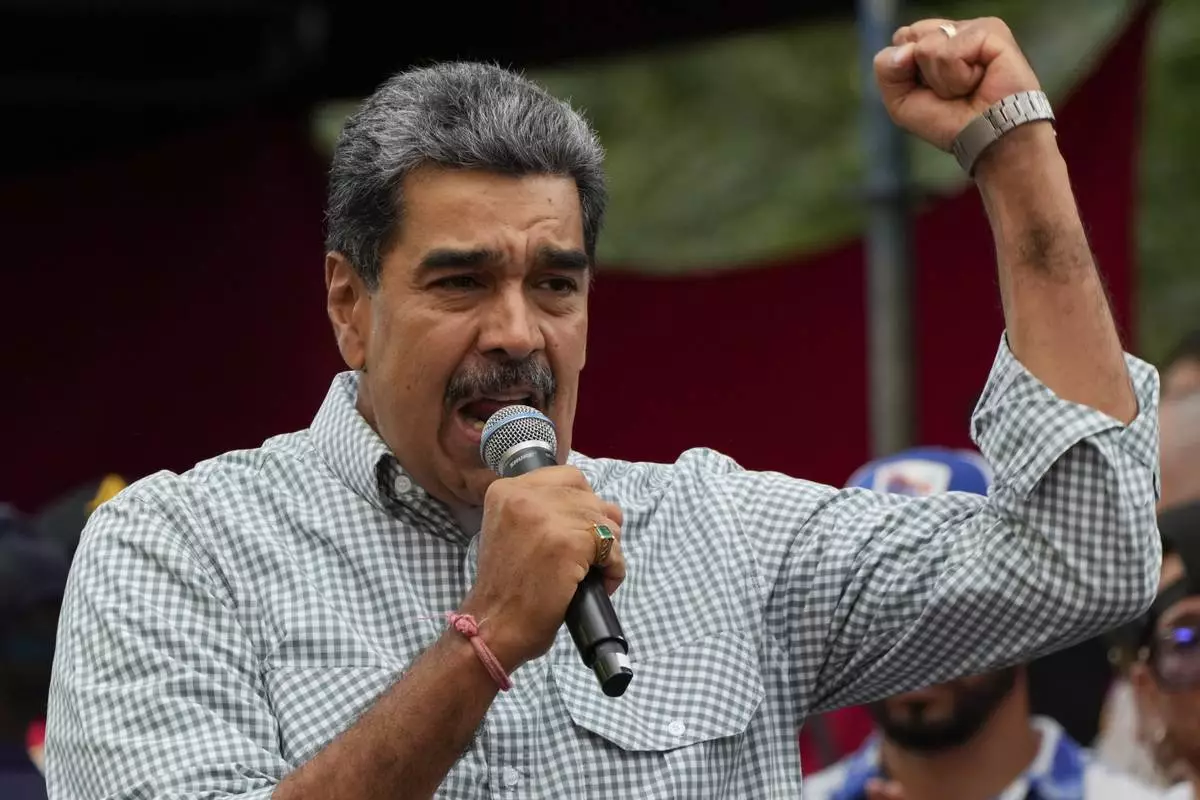
FILE - Venezuela's President Nicolas Maduro addresses government loyalists gathered at the presidential palace in support of his reelection one month after the presidential vote, in Caracas, Venezuela, Aug. 28, 2024. (AP Photo/Ariana Cubillos, File)
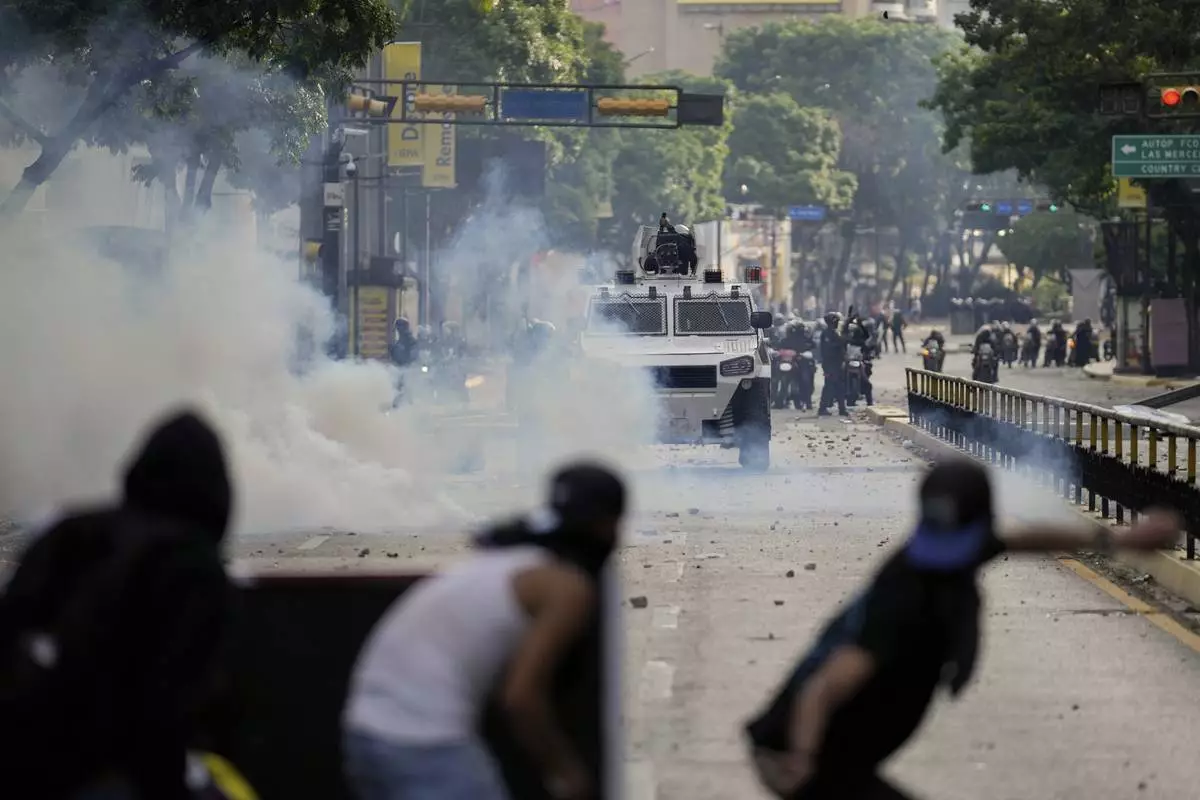
FILE - Protesters clash with police during demonstrations against the official election results declaring President Nicolas Maduro's reelection, the day after the vote in Caracas, Venezuela, July 29, 2024. (AP Photo/Matias Delacroix, File)







